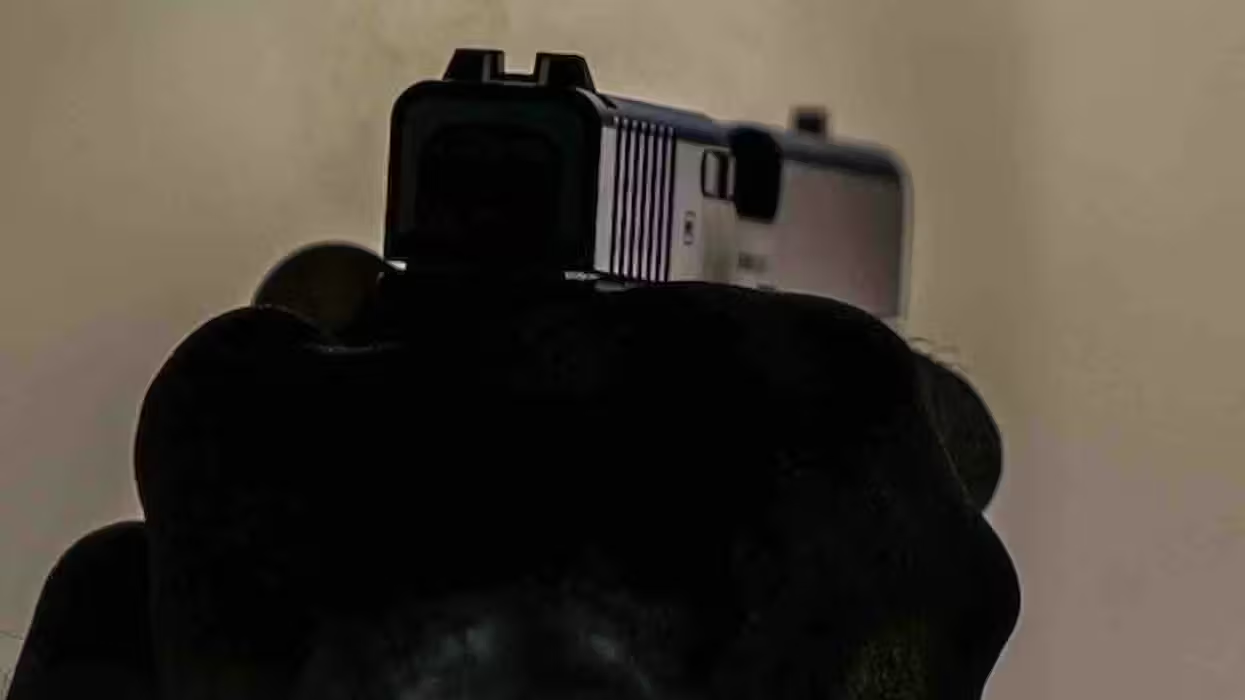Sun Tzu, the ancient Chinese military genius once said: “The military seeks not conquest but victory.”
Militarily, using drones to eliminate enemies is economical. It conforms to the “economy of force” tenant of battle, whereby one seeks to eliminate a threat with the minimum amount of force necessary, preserving heavier resources for heavier tasks. The military would rather subdue the enemy without battle, thereby achieving victory with the least possible cost to personnel, materiel, and collateral.
Politically however, the “cost” is measured in unhappy allies and American supporters.
We saw in Vietnam that militarily, after the Tet Offensive of Jan. 30, 1968, the Vietcong and North Vietnamese Army over-committed themselves by attacking and then briefly taking all South Vietnamese provincial capitals, but at great cost. The U.S. counter attacked and within days or weeks successfully won back every single gain the North had realized, and then had the bad guys on the run.
 In this Nov. 8, 2011 file photo, a Predator B unmanned aircraft taxis at the Naval Air Station in Corpus Christi, Texas. Credit: AP
In this Nov. 8, 2011 file photo, a Predator B unmanned aircraft taxis at the Naval Air Station in Corpus Christi, Texas. Credit: AP
Unfortunately, Walter Cronkite, the undisputed media voice for the American people, decided otherwise and told audiences in February 1968, that the war was “mired in stalemate,” and called for “negotiations.” From then on the U.S. looked for ways out of the conflict, eventually pulling out all U.S. troops in August 1973.
Recently, the Defense Department has identified an American al Qaeda operative overseas, who is, in the words of an anonymous source within the department, “actively planning attacks against Americans overseas.”
The problem is, after the last targeted killing of an American overseas (al Qaeda operative and Virginia resident Anwar al-Awlaki, killed by a U.S. CIA drone in Yemen in 2011) there was an international and domestic uproar, especially by supporters of the president. This struck a nerve that could not be ignored, so Barack Hussein Obama fashioned new policies that somewhat quieted the crowd, but also tied our hands when seeking to eliminate known threats.
 This Oct. 2008 file photo shows Imam Anwar al-Awlaki in Yemen, who was killed in a U.S. drone strike in 2011. Credit: AP
This Oct. 2008 file photo shows Imam Anwar al-Awlaki in Yemen, who was killed in a U.S. drone strike in 2011. Credit: AP
The new drone policy preferred the Department of Defense, and not the CIA, using drones, and any American targeted needed to have substantial provable evidence against them, or proof of imminent danger before a mission could be green-lighted. Another complication, now part of the policy, is that we can no longer send a drone into airspace over a country that doesn’t want us conducting such an operation, unless that country is determined to be rogue.
Let’s go back to Sun Tzu for a moment. Remember that militarily, victory is the number one concern of any mission. That is the objective. If you want us to “win,” we need to be able to use every available asset to achieve victory.
[sharequote align="center"]If you want us to “win,” we need to be able to use every available asset to achieve victory.[/sharequote]
Otherwise, you compromise your effectiveness and therefore your psychological advantage over your enemy. Once the enemy is emboldened by thinking you will not use your weapons effectively against him he becomes even more dangerous than when you were hunting him down like the rabid, running yellow dog he is.
The yin and yang of war is that whatever you fail to employ against your enemy’s weakness, becomes his strength. Whoever employs his weapons most effectively wins.
We were not defeated militarily in Vietnam, nor could we have been. Neither were we ever fully committed militarily. We limited our bombing of North Vietnam. We never effectively mined or blockaded Haiphong Harbor, the main route of shipping supplies to the North. And we never properly pursued the enemy after pushing him out of the cities and towns he took during Tet. We allowed Communist China to intimidate our commitment, let politicians limit our commitment, and then bent to public opinion and media sabotage of our military efforts.
Remembering also that the main objective of politicians is to get re-elected and then preserve a legacy for themselves, military victory is easily explained away as unnecessary conquest. As long as the enemy does not invade the United States or incite insurrection, all is well.
 Pakistani protesters gather beside a burning US flag during a demonstration in Multan on May 25, 2012 against the US drone attacks in Pakistani tribal belt. The US is allegedly considering a drone strike on an American terrorism suspect in Pakistan. Credit: AFP/Getty Images
Pakistani protesters gather beside a burning US flag during a demonstration in Multan on May 25, 2012 against the US drone attacks in Pakistani tribal belt. The US is allegedly considering a drone strike on an American terrorism suspect in Pakistan. Credit: AFP/Getty Images
Sept. 11, 2001 changed all that. Or so we thought. My orders for activation after Sept. 11 stated that I was being ordered to military duty “in support of the Global War on Terror,” which sends our forces to more than 150 countries world wide today.
So, which is it, a War on Terror, or unfortunate little conquests we have no business perpetrating on others in the first place? Do we limit our engagement, thereby emboldening our enemy, or do we strike when necessary to save lives from potential (planned) attacks?
What we have now is legislated indecision. Advantage al Qaeda.
Prior to Awlaki’s demise, both the CIA and Department of Defense conducted drone operations. Now only the Department of Defense is authorized to do so, but actions by both houses of Congress have resisted making funds available for the transfer of CIA drones to the Army. Great hand wringing and gnashing of teeth is going on amongst our elected cowards, uh, I mean officials. They can’t see the War on Terror forest for the terrorist trees!
In the old days, prior to Awlaki’s killing, having the CIA and military conduct targeted drone attacks kept the enemy unbalanced and unsure about where the threat was coming from. With only the military authorized to use drones we are “playing by the rules,” and tipping our intentions and take-off sites.
Advantage al Qaeda.
Does it matter if the enemy combatant is American or not? Should it?
In past conflicts Americans who were caught as traitors were summarily executed. Un-uniformed, or improperly uniformed spies can be lawfully shot on the battlefield in a hot war. Does it matter whether or not it’s from a field grade officer’s 9mm handgun or a drone?
Whether or not to use a drone may come down to whether or not you seek victory, with the only caveat being whether or not the target is more valuable dead or alive and at what cost you are willing to risk going and getting him.
–
TheBlaze contributor channel supports an open discourse on a range of views. The opinions expressed in this channel are solely those of each individual author.

 In this Nov. 8, 2011 file photo, a Predator B unmanned aircraft taxis at the Naval Air Station in Corpus Christi, Texas. Credit: AP
In this Nov. 8, 2011 file photo, a Predator B unmanned aircraft taxis at the Naval Air Station in Corpus Christi, Texas. Credit: AP





